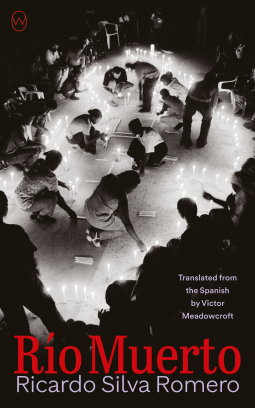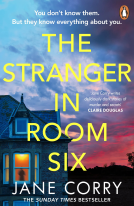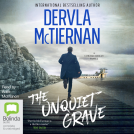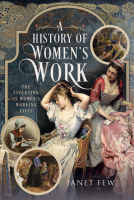
Río Muerto
by Ricardo Silva Romero
This title was previously available on NetGalley and is now archived.
Send NetGalley books directly to your Kindle or Kindle app
1
To read on a Kindle or Kindle app, please add kindle@netgalley.com as an approved email address to receive files in your Amazon account. Click here for step-by-step instructions.
2
Also find your Kindle email address within your Amazon account, and enter it here.
Pub Date Feb 18 2025 | Archive Date Feb 03 2025
Talking about this book? Use #RíoMuerto #NetGalley. More hashtag tips!
Description
On the outskirts of Belén del Chamí, a town that has yet to appear on any map of Colombia, the mute Salomón Palacios is murdered a few steps away from his home. His widow, the courageous and foul-mouthed Hipólita Arenas, completely loses her sanity and confronts the paramilitaries and local politicians, challenging them to also kill her and her two fatherless sons. Yet as Hipólita faces her husband’s murderers on her desperate journey, she finds an unexpected calling to stay alive. This poetic and hypnotizing novel, told from the perspective of Salomón’s ghost, denounces the brutal killings of innocent citizens and at the same time celebrates the invisible: imagination, memories, hope, and the connection to afterlife.
Advance Praise
“In this novel, Silva Romero explores with clarity and precision the way violence weighs on a society like Colombia, which seems to have naturalized it in a disturbing way.” —ADN Bogotá
“Written in visceral prose.” —El Tiempo (Colombia)
“A book that will persist as a key representative of literature dealing with the violence that devastated this country during the armed conflict.” —El Espectador (Colombia)
“Río Muerto is a portrait of Colombia turned into a book, a work we should have in our homes and read with our families instead of watching the news bulletins. (…) This short novel by Ricardo Silva Romero encapsulates a hope beyond the kind revealed in the story itself: the kind of hope that reflects the power of contemporary Colombian fiction to convert the horror of war into literary art.” —Diario de Paz Colombia
“In Río Muerto, Ricardo Silva Romero recreates in poetic and intense prose another side of the horror of our era.” —Abisinia Review (Colombia)
Marketing Plan
- Advance galleys and digital reader copies
- Digital assets including trailer & author video
- Signed book plates available
- National TV, radio, print, and online review campaign
- Consumer-facing national advertising campaign on Shelf Awareness, Lithub, NPR, Foreword Reviews, Goodreads
- Virtual or in-person author events
- Book club discussion guide
- Bookstore co-op available
- Excerpt placement
- Social-media campaign & Goodreads Giveaway
Available Editions
| EDITION | Other Format |
| ISBN | 9781642861457 |
| PRICE | $19.99 (USD) |
| PAGES | 196 |
Available on NetGalley
Featured Reviews
 Reviewer 1132031
Reviewer 1132031
This book was a difficult read. The most difficult part is the fact that this work of fiction is rooted in the real life terrors of people living in Colombia. The protagonist, Hipólita, has lost her husband-knowing he has been shot by a powerful and brutal man, and his cronies. She falls deep into rage and grief and only see martyrdom as the answer for justice. What makes her stance so gut-wrenching is that she wants her boys to also die with her. The author creates Hipólita as a realistic and conflicted person living under extreme oppression-ready to burn everything down. Her actions also beg the questions: what can one person do against injustice? Can grief blind you to truths? What if your desire for right and wrong to be uncovered is warped with selfishness? And can hope really endure in times of never-ending war? As Hipólita barrels towards the end she desires, her deceased husband becomes her counterbalance-desperately trying to snap her out of her rage and show her love once again. And while he was a man of flaws while alive, as laid bare through his rehashing, his love for his family burns bright-helping him to come to terms with his life, while trying to save his family through hope.
This book is not an easy read but it isn’t meant to be. Go into it willing to learn and be humbled by what others live with everyday. It’s not for the faint of heart.
 Sherri R, Reviewer
Sherri R, Reviewer
My thoughts are conflicted on this book, it was a bit confusing at first and hard to get into but the farther I got into the novel the more it started to grab me. It is a heart wrenching story of one family that endured terrifying acts of the corrupt. This is just one story of many that could be told of the horrific things that have happened for many, many years and still happen to this day in Columbia. The end of the book goes into detail explaining the attempts to fix the corruption, mainly due to drug trafficking, throughout the years, unfortunately the problem is no less now than before. Very, very sad to know that even though this is fiction it is telling a story of nonfiction events.
 Naza H, Media/Journalist
Naza H, Media/Journalist
"Rio Muerto" by Ricardo Silva Romero is a captivating and darkly atmospheric novel that delves into the complexities of Colombian society, blending elements of mystery, psychological thriller, and social commentary. The translated version preserves the essence of Silva Romero's prose and storytelling, allowing English-speaking readers to immerse themselves in the rich narrative tapestry he weaves.
Set against the backdrop of Colombia's tumultuous history, "Rio Muerto" follows the journey of its protagonist as he navigates the treacherous waters of memory, identity, and trauma. The novel's intricate plot unfolds through a series of interconnected vignettes, each revealing a new layer of the protagonist's psyche and the society in which he lives.
Silva Romero's writing is both lyrical and visceral, drawing readers into the visceral reality of his characters' experiences while also exploring larger themes of violence, corruption, and the search for redemption. The novel's evocative imagery and vivid descriptions create a sense of place that is both haunting and immersive, transporting readers to the streets of Bogotá and the murky depths of the human soul.
At its core, "Rio Muerto" is a thought-provoking exploration of memory and the ways in which the past continues to shape our present and future. Through its complex characters and intricate plot twists, the novel challenges readers to confront uncomfortable truths about themselves and the world around them, making it a compelling read for anyone interested in literature that pushes the boundaries of conventional storytelling.
I found this book to be different than I expected. Although the slow pace of the beginning was a bit tedious for me, I really enjoyed reading the book once I got past the initial chapters. It had the mystery element that I had been hoping for, and I found myself engaged in the story in the end The characters were well-written, a solid 3 stars for me
My 6P review: publication, plot, people, place, prose/pace, praise
Salomon the mute, is murdered a few steps away from his home and his widow, the courageous and foul mouthed Hipolta loses her sanity and challenges those in the community to kill her and her sons.
Told from the ghost of Salomon, the story explores the violence in Columbia and the corruption throughout the community from the ranks of the police to the pastor who thinks he is one step below God.
It also tells of the love between Hipolita and Salomon and the determination of their sons Maximiliano and Segundo to not only bring their mother out of her stupor but to convince her that they do not need to die as well.
The author used very long sentences, but they seemed to flow. The writing was actually very poetic.
I do not know enough about the trials of the people of Columbia to have felt strongly about this book and that is probably a fault on my part more than the author.
I would recommend this book purely for the way it was written
Thank you to NetGalley for a copy in return for an honest review
 Reviewer 356409
Reviewer 356409
Right off the bat, I'm rating Río Muerto by Ricardo Silva Romero as five stars because the author writes about an issue that so many people have no clue about. I'm not going to do a deep dive into politics, the destabilization of Central and South American countries by the U.S., and their ongoing repercussions, but if anyone is interested, really take a critical look at the U.S.'s history in our neighboring countries.
It's hard to think through what to write on this one. All I have running through my mind is the couple I met over ten years ago who told me their story of how they had testified on the floor of Congress regarding atrocities that occurred in Brasil following a dictator coming to power in the 60s. The way she was haunted by what she had seen, even more so because nothing was done after her testimony to help those still experiencing horrors, has sat in my heart since our conversation. There is so much that if people knew about the history of Central and South American countries, they'd maybe have empathy and understanding for why there is still a lack of stability in many countries.
The story is an exploration of navigating grief and surviving impossible conditions. It's haunting, and haunted. After Salomon's death, Hipólita is pretty much completely shut down. As she comes out of her grief (maybe not exactly coming out of her grief, just expressing in a different way), we see her take on the town that turned an eye or abetted the killers when her husband was executed in the street. I feel like I need to re-read, because there was so much to take in. I really hope the book has tremendous success, as I really would love to see more books like this in the public narrative. We can't afford to be insular and ignore the pain of others. I really loved the way this story was told, and highly recommend it. It is dark, it is going to hit hard, but these are the stories that need to be told.
Please be advised that I received an Advance Readers Copy (ARC) from NetGalley in exchange for an honest review.
 Richard B, Reviewer
Richard B, Reviewer
<i>Rio Meurto</i> is a fictional poetic presentation of violent conditions in Columbia. The protagonist, Hipoilta Arenas has had enough of the brutal conditions surrounding her village and she is willing to pay he ultimate price. <i>Rio Meurto</i> is written by well-known author and poet Silva Romero.
Belén del Chamí, is a small town that does not appear any map of Colombia. The mute Salomón Palacios is murdered as he arrives home on evening. His widow, Hipólita Arenas, is so distraught that she challenges her husband’s murderers to kill her and her two sons. The two sons are not so certain that they wish to die but their mother insists that they should confront her husband’s murderers so that they all may join him the afterlife. At the last minute, Hipolita finds that she may wish to stay alive. The story is told in a very poetic format by Salomon’s ghost, who remains connected to his family throughout his wife’s period of insanity.
The story is told in such a way that is it difficult to follow. Although it is poetic and fascinating at times, the story as a whole did not hold my interest.
The characters are the strong points in the story. The widow is a strong and passionate character who insists that she and her sons be killed since they cannot live without her husband. She becomes a thorn in the side of her husband’s murderer. Her oldest son is the hardest of the two boys and he often takes his violent tendencies out on his younger brother. The younger of the two lives in fear all of the time and yet he feels he deserves the wrath he receives from his older brother. The overseer is Salomon the ghost who narrates the story for us and adds colour throughout. If not for these characters I would not have been able to finish the story.
This novel suits people who like Spanish stories told in a poetic fashion. I give the book a 3 on 5 since I found it difficult to follow at times.
.
 Educator 1004250
Educator 1004250
Very slow novela, heartbreakingly telling the story of many families in Colombia from a small village and dealing with the military, the police, the guerillas and the paramilitary.
The story drew me in very well, but upon finishing it, I was left very disappointed. We meandered painfully toward a lack of real resolution for any of the characters. Well written and capturing this period beautifully with details, but overall an unrewarding read.
Thanks to NetGalley and World Editions for the US edition ARC of this book in return for an honest review.
I really enjoyed Rio Muerto. The pace of the story was consistent throughout the whole story. It was definitely a marathon, not a race. There were a couple of parts that I reread for better understanding, but this didn't take away from the quality of the work. The characters were the stars. I especially enjoyed the widow. I think being a Latina helped me understand her POV a little deeper than most. The drama reminds me of my mother - also a widow. I look forward to purchasing a physical copy of this book. I will definitely order the original Spanish version. I believe some of the emotion of this book was lost in translation.
 Selina G, Reviewer
Selina G, Reviewer
This book had me in tears within the first few pages & I'm not one to cry often for books. This is a story of a strong female lead & 2 sons as told through the eyes of her husband's ghost. We see the journey of a rage-filled woman fueled by grief & loss & the pentup frustration of injustices in her community. We see characters coming into their own, stepping into new roles despite being unsure of how to navigate their new situation. We see the true strength & wisdom of the emotionally "weaker" character shine through. Overall, it is a great fictional story that brings awareness to the ongoing struggles of Colombia through a family dealing with grief as they figure out their next steps.
following the family as they deal with the death of a family member who is a traitor to the church.
the author translating the book has embodied catholicism in a accurate way.
the plot showcases familial grief in a wonderful way as well as dealing with the behaviour of corrupt public figures.
overall, this was a really powerful story. the last couple of chapters in particular made me really emotional.
 Diamante L, Reviewer
Diamante L, Reviewer
"Río Muerto" by Ricardo Silva Romero is a chilling and dark novel that delves into the negative side of Colombian society with unflinching honesty. Set in Medellín, the story unfolds through the eyes of multiple characters whose lives intersect around the central murder mystery of Salomón.
Silva Romero's writing is both lyrical and descriptive, painting a vivid portrait of a city haunted by its past and grappling with its present realities. The characters are deeply flawed yet undeniably human, each grappling with their own demons and desires.
Rio muerto is a haunting and powerful novel that will resonate deeply with readers who appreciate literary fiction that explores the complexities of human resilience, the power of the human spirit, and the struggle for justice in the face of violence and oppression.
As I, who have been swept away by the emotional tides of Jardim de Inverno's family drama and the sweeping romance of O Bangalô, found myrself drawn to the haunting world of Rio muerto, I've discovered a novel that echoes the same themes of family, love, and the unbreakable human spirit that resonated with you in those beloved books. In this poetic and hypnotizing tale, Ricardo Silva Romero masterfully weaves a story of a mother's unyielding determination to protect her children, much like the fierce love of the mother in Jardim de Inverno, as she confronts the brutal forces of paramilitarism in a small Colombian town. As you immerse yourself in the world of Rio muerto, you'll be transported to a place where the boundaries between life and death blur, much like the dreamlike quality of O Bangalô's island paradise.
Thank you NetGalley, World Editions, and Ricardo Silva Romero for giving me access to this ebook!
This novel was an anecdotal and partially mythical take on the very real Colombian violence that still plagues the country to this day. Following the family of Salomon Palacios after he is killed by a corrupt paramilitary group in front of their house, Silva Romero takes you on a fascinating journey that truly only spans a short period of time but was extremely well rounded from beginning to end. The writing is full of evocative imagery and magical realism that made me feel so connected to each member of the Palacios family as they conquered their grief, anger, sadness, and disillusionment. Every character in this novel was fully realized and felt like they could have been standing right next to you for how well they were fleshed out.
The only reason this was not a perfect score for me was that I did at some points get lost in the storyline as the chapters would sometimes signify a time change of mere moments to, at times, a different person’s perspective entirely and I had to reorient myself to figure out where I was in the story.
Overall, I was fascinated by this novel and learning more about Colombia in general. A four star read for me!
Definitely a dive into a culture I’m sadly not overly familiar with - but even given that ignorance on my part the interconnectedness of the characters is very visceral. The human moments shine all the more amid the bleak circumstances and it definitely hits home. The element of reflection and perspective thats able to be told with the premise of the book is creative and you feel like you’re haunting and watching all of it yourself with each turn of the page.
 Yesenia G, Reviewer
Yesenia G, Reviewer
Tragic, beautiful, just full of the most amazing and pretty writing. How he's able to write about the true horrors is beyond me, it's definitely a scary honest read.
 Reviewer 1219542
Reviewer 1219542
I was drawn to this book because I've been learning Spanish and don't know a lot about Spanish speaking countries and the cover looked intriguing. Below are my thoughts.
Ooh I'm shaking at the authors note!!! And the first sentence??? LETS GOOOI
The translation was a little jilted and awkward
Beautiful metaphor
I was initially drawn to this book as a avid reader of mysteries and thrillers and because I know some Spanish I thought this could be a good way to get some practice or historical context
I think that not having much understanding of what the history of that region is was hard for me to empathize with the characters. And I didn't totally buy in to their motivations. It definitely could just be the translation but it did feel a little choppy conceptualist conceptually especially understanding metaphores versus what was actually happening in real time.
One thing I really liked was a demonstration of how it would feel to see what's happening after your own death and what you leave behind. Really cool concept.
Mild but strange
I appreciate the matter of fact tone of the narrator as a ghost but def couldn't relate to some of the emotions without proper context of what it must be like to live in a far out village, ie why they had to bury him in the dead of night. The author also manages for some humor while keeping an ominous and fantastical tone regarding the hold the devil has on this small town
Also were there no chapters?
Um yikes the bar is on the floor, the mute cheated on his wife and she's thanking him for not hitting her
Jeez this book got really dark out of nowhere. Too flippant about hipolitas delusion
5/5 for making me feel something. I think all my reactions were the author's intention
 Anita W, Reviewer
Anita W, Reviewer
I sincerely hope this book receives widespread acclaim and recommendations. I’m not familiar with Romero’s work, but I feel this is a sensitive and sympathetic translation and his writing is poetic, haunting and evocative. I’ve visited Colombia and in all my travels, it’s the one place that haunts me. As a tourist, I didn’t experience the issues dealt with in this novel, but I sensed the threat and undercurrent. There were soldiers with sub machine guns escorting us everywhere, poverty beyond imagination alongside signs of extraordinary and obscene wealth. There was a sense of faded colonial elegance with magnificent European style buildings alongside shacks where communities were living in complete squalor. The country is rich in assets but greed, politics and gang sub cultures have corrupted.
Rio Muerto explores numerous issues in both an abstract and direct way. It’s difficult to explain because the narrative device of a ghost works really well. The ghost is ‘there’ and ‘not there’. Experiencing and observing. It’s often an uncomfortable read and so it should be because the violence and injustice is an every day fact of life. We have little idea what it feels like to live in such conditions and Rio Muerto is barely a taster, I found it incredibly moving, mostly because of resilience that shines through. This book is a journey and at some point, I’ll read it again. It’s an amazing story and so well told.
 THOMAS K, Reviewer
THOMAS K, Reviewer
4 stars for a book of literary/historical fiction about the tragic, ongoing civil war in Colombia. Although a peace agreement was signed in 2016, the war continues, thanks to the drug business.
The author explains that a conversation with a friend led to him writing this book. His friend's name was changed, but much of the book is based on his friend's experiences in 1992, when his father was murdered by right wing para military thugs, for helping someone leave town that they considered a traitor.
I have visited Colombia on a cruise stop. I found the people to be warm and friendly. I like to visit and read about other countries so I can learn about their culture and history.
One quote: "I am telling what I was told to me: that Salomon Palacios was gunned down only a few paces from his home and died and became a nameless thing in the gloom--the closing in--before returning from the dead. That he took an eternity in coming back, for the soul recovers memory in its own time, at its own rhythm, but that he must be out there now, and always will be, because death is the true present and because some murder victims do not depart."
The translation was excellent.
Thank You World Editions for sending me this eARC through NetGalley.
#RíoMuerto #NetGalley.
Pub Date Feb 04 2025
Rating: 4.3 Stars.
Ricardo Silva Romero is one of those Colombian authors that I have been wanting to read for at least two or three years. I had already heard about his works, but I didn't dare to give him a chance. This changed this year for two reasons: 1. My friend Angie told me about “Río Muerto” at Ulibro. And 2: This was one of the books chosen in the entremeses reading club, in which I participate very occasionally.
In other words, in my mind I said: I need an excuse to read this author, and this year two very good excuses appeared, both focused on this book: “Río muerto”.
Although this is a short book, Río Muerto is a novel full of pain, suffering, nostalgia, violence and death. It is a story that, according to the author, is real and is part of Colombia's history, which continues to experience a war that will soon be 60 years old.
Here we will get to know a town called Belén del Chamí, which is located in the depths of Colombia and is completely ignored by the Colombian government, so much so that it does not even appear on the map. Even so, this town has hundreds of inhabitants, among which are civilians, guerrillas and, of course, paramilitaries. In this context, we will witness the murder of the mute Salomón, who with his death begins this painful story.
Salomón leaves behind a wife and two children, whom we will follow from now on, witnessing the grief of departure, but also the challenges of survival in a community where everyone survives as best they can, without help from anyone else.
Without a doubt this has been a hard read, but I have enjoyed it from beginning to end. I think Ricardo Silva Romero clearly represents this town and its inhabitants who are not only victims of violence but also play a role in it. People like the police chief, the pastor, or even the neighbors themselves, all have a side in this conflict and all will play an essential part in the story.
After finishing this book, I was convinced to want to read more works by Ricardo Silva Romero, because I liked his narrative and how the story unfolds with his words. I recommend this novel to those who are looking for stories about the Colombian armed conflict, or even to those who are looking for a short book to devour in a week.
 Bookseller 1470524
Bookseller 1470524
I really enjoyed the poetic writing style throughout the book. This short novel highlights how complex it is to be a human trying to live and survive in an environment of violence and injustice. How tiring or frustrating it can be.
And, sadly how in this process, there are often innocent lives taken, discarded, and forgotten. In this story we get invited to experience the grieving process of Salomon's family.
The dynamics of the town.
And it invites you to think about the thousands of families in real life who have been affected by the injustices of life in Colombia.
This book was published in Spanish in 2020 and this review is of the English translation with an expected publication date of February 2025.
Río Muerto is an absolutely beautiful and tragic story about political violence in Colombia told from the perspective of the ghost of a man, Salomón Palacios, who is murdered for helping the wrong people. He observes his wife Hipólita and their sons as she decides that she will die speaking the truth about his brutal murder and holding those accountable, however she decides to live after confronting those responsible. In life Salomón was mute, however his ghost finds ways to subtly communicate with his family and one member of his community who is able to speak with him directly.
The framing of this novel is interesting as while it's told from the perspective of Salomón's ghost, it's that perspective being re-told from a passenger in one of Salomón's son's taxicab about 15 years after the events of the novel and it states that this story was told to him while stuck in one of the worst traffic jams he'd encountered.
The English translation of the novel includes historical context explaining the brutal killings and warfare in Colombia throughout the 19th and 20th centuries. While this story is fiction, it is real in the sense that this was the lived experience of many people in Colombia during this time.
Many thanks to World Editions and to NetGalley for this ARC to review. This review is my honest opinion
 Reviewer 1378521
Reviewer 1378521
This is a harrowing novel about the brutal history of Colombia, and in the Afterword, the author wrote a heartfelt and much-needed context for the story. I enjoyed that very much. The main story, though, not so much.
The problem isn't with the premise (which is heartbreaking), or the writing (which is beautiful). I just find the story structure to be very repetitive: Hipólita, mad with grief and anger, went around town trying to get herself killed. Yeahhhh, her idea of justice or whatever it was she was trying to do, was to turn herself and her children into martyrs. I can see how she got to that point, but the rinse and repeat format wasn't working for me: she picked a fight with someone, hoping they will kill her and her children, they somehow don't, and so she moved on to the next one, and this next person also for one reason or another ended up not shooting her...
It got tiring. I'm sorry; for all the emotions packed into the prose, at one point I just thought, "Can someone just fulfill her wishes, but spare the kids?" because the horrible thing was, Max and Segundo didn't want to die. The boys were scared out of their minds, especially poor Segundo (he'd have a lifetime of therapy ahead of him). Not that Hipólita cared; she was deaf to reason, ignoring her children's protests and pleas. There was even a part where she actually got mad at the boys for not wanting to die, and in a segment where she had to confront this merciless commander, she suddenly realized that these evil men can do worse things to you than simply shooting you. Hmm... if only she'd listen or think for a moment. Now I don't want to be too judgemental, but I also find her actions to be entirely pointless in the context of the novel. We were told that killings and torture happen very often in this town, so what's another death or three? Can martyrdom be achieved if your deaths don't even register?
But that's kind of the point: insanity is immune to logic. As far as an exploration of how a woman can be driven to illogical ends by grief and oppression, this novel achieved that perfectly with Hipólita. I just wished it didn't take that many cycles to get the point across.
By any means, I really like the writing. There were parts where I felt emotional about Salomón's death, particularly with regards to how his children remember him and how his absence was felt. As he was mute, he communicated through writings on pieces of paper, and it was the way Segundo held on to one such piece that gave me all the feels. Incidentally, the way Max and Segundo begged their mother also made me want to slap the living hell out of Hipólita, especially when we've had cycles of her trying to get themselves killed and my patience was running thin. Really, that was my issue with the book: it kept going in maddening circles.
Overall, while this book made me feel really tired and annoyed at parts, I'd still say it's a worthwhile read. It is an crucial examination of the lives of Colombians living in a state of perpetual violence and oppression. Just... store up on some patience while you're at it.
I should have read this sooner, it is such a good read. It could have been double, even triple the length and I would not have noticed.
Like a river, the story and the writing flowed fast and well, gaining speed, pulling you with it.
For a moment I thought we were headed toward a Kill Bill style resolution but what happens to Hipolita and her two orphans was not bloody but just as frightening.
 Reviewer 1383995
Reviewer 1383995
Ricardo Silva Romero’s Río Muerto is a haunting and poetic novel that explores Colombia’s paramilitary violence through the ghostly perspective of Salomón Palacios, a mute man murdered outside his home. His widow, Hipólita Arenas, driven by grief and defiance, confronts the forces that took her husband. Silva Romero crafts a powerful denunciation of violence while celebrating the endurance of memory, hope, and the unseen. Reminiscent of Chronicle of a Death Foretold, Río Muerto is both a heartbreaking and unforgettable literary experience.
 Reviewer 860893
Reviewer 860893
Río Muerto by Ricardo Silva Romero is a haunting and poetic exploration of Colombia's harrowing history with paramilitarism and violence. Reminiscent of Gabriel García Márquez's Chronicle of a Death Foretold, the novel delves deep into the painful reality of a community struggling with murder, revenge, and survival, all through a lens of magical realism that blends the living and the dead.
The story begins with the murder of Salomón Palacios, a mute father who is killed just steps away from his home in the town of Belén del Chamí—a place that, ironically, is too obscure to even appear on most maps of Colombia. His widow, Hipólita Arenas, is a strong and fierce character whose grief transforms into a ferocious, almost suicidal defiance. In her sorrow and anger, she confronts not only the paramilitaries responsible for her husband's death but also the corrupt local politicians who have allowed such atrocities to continue. Her bold declaration to face death herself, alongside her two sons, is a desperate attempt to hold onto some semblance of control in a world that has spiraled into chaos.
The novel is narrated from the perspective of Salomón’s ghost, which allows for an interesting narrative structure and adds a layer of ethereal reflection on the events that unfold. This ghostly point of view is not just a narrative device, but also a means through which the novel addresses the broader themes of memory, violence, and survival. Salomón’s presence, though spectral, permeates the story, reminding the reader that death, though physical, does not erase the lived experience or the connections that persist in the minds of those left behind.
At its core, Río Muerto is a novel about the invisible forces that shape human lives: imagination, hope, and the afterlife. Silva Romero uses these elements not to create an escape from the violence, but to highlight the resilience of the human spirit in the face of unimaginable loss.
I read the English translated version. I requested and was given an Arc copy of this book by Netgalley.
I did not fully grasp the topic of this book before O started to read it. It’s about the events that happen after a mute man is gunned down in front of his home by a corrupt military. The man leaves his wife and two young sons behind, who struggle to move on. The ghost of the mute man is viewing everything that happens and is telling the story. I enjoyed reading the attempts of the mute to protect and communicate with his sons from the afterlife. His wife is also pretty bad ass in some scenes. The story gives insight into the regular lives of people who live in a Colombian village controlled by a corrupt military power, very sad and frustrating. The writing was very entertaining and descriptive. I found it a bit awkward to read as some of the words were not translated into Spanish or the translated sentence sounds funny in English. Some phrases just make better sense in Spanish.
Hard hitting magical realism
—
In this slim volume is a world of ghosts and prayers, war and love, faith and despair. In a Colombian town so far off the beaten path that it doesn’t even appear on maps, in the late twentieth century, a man does his best to be a good man, but receives the wages of sin. Left behind are his wife Hípolita and his two young sons, Maximiliano and Segundo, as well as his ghost, and their neighbours and enemies, often the same person. Hípolita has had enough: she will speak truth to power and take whatever comes next.
in lyrical and charismatic prose, Romero brings to life Colombia’s terrible history with a family that lives—and dies—with every ounce of their being, in a world that rewards no-one. The father, the mother, the two sons, all so desperately love each other that they care so deeply, perhaps too deeply, that even death, grief, youth, are no barrier to showing how much they care. The ending is no certainty, keeping up the suspense right to the last word, and the world of ghosts and monsters is never too far away.
Four and a half stars.
“𝘐𝘧 𝘸𝘦 𝘴𝘱𝘦𝘢𝘬, 𝘵𝘩𝘦𝘺 𝘬𝘪𝘭𝘭 𝘶𝘴; 𝘪𝘧 𝘸𝘦 𝘳𝘦𝘮𝘢𝘪𝘯 𝘴𝘪𝘭𝘦𝘯𝘵, 𝘵𝘩𝘦𝘺 𝘬𝘪𝘭𝘭 𝘶𝘴 𝘵𝘰𝘰.”
Set in Colombia in 1992, Rio Muerto , translated from the Spanish by Victor Meadowcroft, takes us to the rural village of Bélen de Chami, a community caught in the throes of the country’s seemingly unending civil war.
The story unfolds from the perspective of Salomón’s ghost, Hipólita’s deceased husband, who was executed right outside their home. As Hipólita becomes engulfed in her grief, we learn that Salomón Palacios is an ordinary man who simply found himself in the wrong place at the wrong time. His inability to speak—he is referred to as a "mute"—symbolises the voicelessness of countless Colombians who have faced senseless violence at the hands of local guerrillas. His murder sets off a tragic chain of events, drawing us deeper into their harrowing reality.
Through Salomón’s ghost, we follow Hipólita and her sons as she confronts paramilitaries, corrupt politicians, her husband’s murderers, and the church—each entangled in a web of relentless physical and psychological brutality. Silva Romero presents this poignant tale of violence, community, and survival with precision, delivering a narrative that is both chilling and profoundly impactful.
The family's ordeal is unimaginable. Hipólita - a name that conveys an imagery of liberation and freedom resonates deeply within the context of the novel - endures severe abuse, grappling with rampant misogyny and corrupt power. “𝘛𝘩𝘦𝘺 𝘬𝘪𝘭𝘭𝘦𝘥 𝘺𝘰𝘶𝘳 𝘱𝘢𝘱𝘢 𝘣𝘦𝘤𝘢𝘶𝘴𝘦 𝘵𝘩𝘦𝘺 𝘤𝘢𝘯 𝘬𝘪𝘭𝘭 𝘢𝘯𝘺𝘰𝘯𝘦,” Salomón’s ghost tells their children. Romero’s darkly poetic tale is further brought to life through a haunting Latin American magical realism that feels both eerie and compelling.
Segundo, the second-born son, give us hope as he strives to be different and to save his family from their tragic fate. This complex narrative of this family who dares to challenge the status quo is not an easy read; as I immersed in the story I found the feelings of powerlessness it evokes to be quite overwhelming. Despite its difficult topics, this novel is crucial and necessary.
Thank you to NetGalley and World Editions for the advance copy. #pudseyrecommends
3.5⭐️ I wanted to like this book more than I did. But, I still had a good experience.
The story centers around a murdered mute man in the town of Belén del Chamí (a town so small that it does not even figure in the official map of Colombia), and how his widow and sons deal with the aftermath.
I liked the premise of the book, I think the story was told in a great way. What made me give it a lower rating was that I’ve read so many stories similar to this one that they somehow start to blend together.
That being said, I want to continue reading more from this author in the future.
 Andrija F, Educator
Andrija F, Educator
Río Muerto is a powerful and haunting novel by Colombian author Ricardo Silva Romero, exploring the relentless violence and paramilitary control that has plagued Colombia. The story unfolds in Belén del Chamí, a remote town where Salomón Palacios, a mute man, is brutally murdered just outside his home. His death marks the beginning of an intense and emotional journey for his widow, Hipólita Arenas, and their two sons.
Overcome by grief and fury, Hipólita confronts the town’s paramilitary forces and corrupt politicians, daring them to kill her and her children as well. Rather than retreating into silence, she refuses to be another victim of a society ruled by fear and impunity. As she navigates her sorrow, she discovers an unbreakable resilience, challenging the forces that seek to control her fate.
What sets Río Muerto apart is its unique narration: the story is told from Salomón’s perspective, even after his death. As a ghost, he watches over his wife and sons, bearing witness to the cruelty of the world he left behind. His spectral voice provides a deeply poetic, mournful, and sometimes surreal lens through which the reader experiences the aftermath of his murder.
Silva Romero’s prose is both lyrical and raw, capturing the harsh realities of violence while also illuminating the strength of the human spirit. The novel is a meditation on grief, justice, and the thin line between life and death. It forces the reader to confront the pain of loss while offering a glimmer of hope through Hipólita’s determination to survive.
With its gripping storytelling and emotional depth, Río Muerto is a profound literary work that sheds light on Colombia’s history while delivering a timeless story of resistance and love.
 Mariechen P, Reviewer
Mariechen P, Reviewer
If you don’t know much about Colombia’s history, I suggest reading the author’s note first. While it won’t spoil the novel, it will prepare you for the violence, and describe the background thereof.
Río Muerto is not here to teach you about Colombia, though. That, and the stories of all the world’s countries suffering from the after-effects of colonialism, is the reader’s own responsibility to learn. It does, however, offer a starting point to understand the country: not just the violence so often portrayed in mass media, but also the spirit of survival and renewal in the Colombian people.
As befits its name, Río Muerto is dark, gritty, and ghostly. It belongs on a list of great Colombian literature.
Ricardo Silva Romero's Rio Muerto, translated by Victor Meadowcroft, examines the effects of the unrelenting violence in 1992 Colombia's on its citizens. Belén del Chamí is a town so forgotten it’s not even indicated on maps. Ravaged by decades of conflict between guerrillas and paramilitaries with no respite in sight. In the 1950s and 60s those fleeing persecution came here only to be subjected to guerilla violence in 1975. The name Rio Muerto refers to the Rio Charm river, a river of death that’s carried away many dead bodies. Life is cheap here.
Salomón Palacios, a mute man, is murdered a few steps away from his home because he helped one of the members of the opposition move so he has to be a “rat”. His ghostly form also acts as the story's narrator. What he observes is his widow, Hipólita, a woman known for her courage and sharp tongue, descends into grief and madness. She abandons them for a month while she grapples with her loss, a period marked by near-starvation and a complete withdrawal from life. When she recovers she's a woman on a mission to make known to everyone who those responsible for her husband's death is. It's not easy since those in power in town are also the corrupt, whether it's the priest or the policeman. Once she has done this, she plans on killing herself and her two sons, Maximiliano, the strong and outgoing twelve-year-old, and eight-year-old Segundo who is fearful of everything. Hipólita sees this as the only way they can be together again as a family.
The novel points out the pervasive corruption, extending from local politicians to the police and even the church, highlighting the systemic nature of the problem. This corruption is not just a background detail; it's a driving force in the narrative, shaping the characters' fates and perpetuating the cycle of violence.
Through Salomón's ghostly narration the senselessness of the violence and its lasting impact is emphasised. He looks on Hipólita grapples with grief and the weight of her husband's reputation. He also observes his two sons as they navigate a world marked by fear and uncertainty.
“He floated nearby, like a moth fluttering at lightbulbs, overcome by a need to swear to them by the Lord and his angels that he’s had no idea they would actually kill him.”
Rio Muerto is an unsettling read: dark, atmospheric and filled with despair and a sense of hopelessness. Romero shows the brutality of life in Colombia as well as the resilience of the human spirit and the enduring connections that, in this case, transcend even death. An unflinching portrayal of a community ravaged by conflict, offering a poignant reminder of the human cost of violence.
 Reviewer 1474393
Reviewer 1474393
Ricardo Silva Romero’s Río Muerto is a searing and poetic exploration of loss, violence, and resilience, set against the turbulent backdrop of Colombia’s paramilitary conflict. Reminiscent of Gabriel García Márquez’s Chronicle of a Death Foretold, this novel blends the harsh realities of political violence with a lyrical meditation on grief, memory, and the power of the unseen.
The story begins with the murder of Salomón Palacios, a mute man living on the outskirts of Belén del Chamí, a forgotten town that seems almost mythological in its obscurity. His death ignites a fiery reaction from his widow, Hipólita Arenas, a woman as brash as she is courageous. Hipólita’s grief turns into a desperate and defiant confrontation with the paramilitaries and corrupt local politicians who have stolen her family’s future. As she risks everything to challenge the forces that killed her husband, Hipólita discovers a reason to keep living: a fierce determination to protect her sons and honor Salomón’s memory.
What sets Río Muerto apart is its unique narrative perspective. Told through the ghost of Salomón himself, the novel captures an otherworldly quality that adds depth to its themes. Salomón watches over his family, his perspective giving the story an ethereal, timeless tone while highlighting the human connections that endure beyond death. Silva Romero’s prose is hypnotic, blending raw emotion with moments of poetic beauty. He paints vivid scenes of Belén del Chamí’s landscapes and violence, while also illuminating the invisible forces of imagination, hope, and spiritual connection.
At its core, Río Muerto is both a denunciation of systemic brutality and a celebration of resistance. Through Hipólita, Silva Romero portrays the strength of ordinary people in the face of unimaginable suffering. Her raw grief, laced with profanity and unrelenting defiance, makes her a compelling protagonist who refuses to be silenced.
Silva Romero uses his narrative to address the larger context of paramilitarism and its devastating impact on rural Colombia. Yet, even as it condemns violence, the novel uplifts the invisible threads of humanity that persist in its shadow—memory, imagination, and the faint yet unbreakable hope for a better future.
Río Muerto is a haunting and profoundly moving novel that masterfully intertwines the personal and the political. Silva Romero’s storytelling is as bold and unflinching as his characters, making this a powerful testament to resilience in the face of tragedy.
An enticing novella by Columbian author Ricardo Silva Romero, Río Muerto (2025) is a historic literary fiction tale narrated by a ghost. Salomón Palacios is a mute man in 1992 Columbia, when he is shot two metres from his front door. His widow, Hipolita, together with their sons Max (twelve) and Segundo (eight) set off on a journey, accompanied by Salomón who cannot intervene in their grief. It makes for difficult reading and is a melancholic reflection on violence experienced by ordinary Colombians. An almost poetic narrative feel gives this exquisite fable account a four star read rating. As always, the opinions herein are totally my own, freely given and without any inducement. With thanks to World Editions and the author, for an uncorrected advanced review copy for review purposes.
Río Muerto chronicles the life of Salomón, a mute, whose senseless death leads his spirit to haunt the lives of his wife and two remaining children. Amidst the chaos of war, the small town of Belén de Chamí includes crooked characters and violence that will have you grieving alongside Hípolota and her sons.
Salomóns character as a spirit parallels the need to speak both in life and death, and has one goal once he is gone: to have his family leave their town. I really enjoyed the character development of the young boys, and how they had to grow up and take care of themselves, striving to live. Hípolota's grief broke my heart!
Overall, this book was so atmospheric and dark.
Thank you Ricardo Silva Romero, the publisher, and Netgalley for the book inexhange for an honest review.
 Maria Grazia B, Book Trade Professional
Maria Grazia B, Book Trade Professional
As is the case with many Latin American novelists, Silva Romero's prose has a hypnotic rhythm, an oral narrative, almost ballad-like quality, and all this to recount events of unspeakable cruelty, such as a father murdered on the doorstep who becomes a ghost to protect his derelict family and guide them out of the clutches of madness, misery and injustice. Not an easy read, partly because of the type of writing, at times too emphatic, and partly because of the facts narrated. A novel that lacks very little - perhaps a little lucidity - to be called a masterpiece.
 Bookseller 1538377
Bookseller 1538377
This is a dense but interesting insight into Columbian history and the violence which has gripped many of its towns and villages. The ghost of Salomon tells the story of his death and its repercussions, poetically highlighting the victimisation of innocent citizens. My only problem with this novel is its writing style, which could be down to its translation, which at times lacked flow and was hard to get into. However, a good read for people looking for a short, poetic work of translated fiction from Latin America.
This is an excellent, short book but full of tragedy, I would definitely recommend this to anyone who is a fan of translated works, especially from Spanish. The character development is fantastic.
February 1992, and the rural village of Bélen de Chami is caught in the midst of Colombia's seemingly never-ending civil war.
When the mute Salomón Palacios is senselessly murdered by local guerillas, leaving a widow and two orphan boys, it sets in motion the chain of events that draw the reader inexorably onward.
His widow, Hipólita, is so enraged that she confronts his killers and everyone else in the village complicit in his murder, in vivid fashion like a thriller. Meanwhile, Salomón's ghosts watches over proceedings, in magic realism style.
This is a short but gripping and memorable book.
Thanks to the publisher and NetGalley for the ARC in exchange for this honest review.
Thank you NetGalley and World Editions for providing me this book in exchange for an honest review
This book tells you from a POV about a family who lives in an area with corrupted government and church, and perfidious neighborhood. The father was killed by a powerful and influential figure who's in drug cartel and a pornographer. Left behind are the wife and 2 sons. Full of grief and enraged, the wife tried to faced off the corrupted people while the spirit of the husband was trying to speak to his wife to stop her action and just flew from that place.
This book was like a reminder of mine, for how much I love literary fiction with historical aspects and relevant.
It is like opens a window to my mind and see the real horror the Columbians facing for years and years even now.
I'm so glad that I'm allowed to read this book as it is such a thought-provoking book. I really recommend this book!
This story was gut wrenching. We are watching this story unfold from the perspective of Salomon's ghost, our MC. Things transpire that cause him to be in this state and those things cause his widow, Hipolita, to completely lose all sanity. The whole thing was a bleak and haunting look at death, violence, facing our fears and losing all hope. Set in Colombia during a very violent and scary time, when innocent people were governed and sometimes slaughtered by paramilitaries and the local authorities who either collaborated with them or simply stood by and did nothing. This book was previously published in Spanish. This translated version releases in paperback February 18, 2025. Thank you so much to NetGalley & World Editions for the ARC.
This was a complex story of a family in rural Colombia, who had pushed against the status quo. In so few pages, this weaves an in depth tale of corruption of an entire community and also the faults of every day people. Segundo, the second born son, is the only light, trying as he might to be different and save his family.
 Reviewer 1106153
Reviewer 1106153
This translated novel takes place in Colombia in the year 1992. We follow a mother and her two sons as they navigate grief and loss after their husband/father is gunned down in front of their home.
At times the book can be difficult to follow but it doesn't take away from the strong message it leaves after you finish reading. It's a novel meant to provoke the reader... what would you do if the government controlled you in this way, if they were the ones committing the atrocities? How would you react to losing someone you love because they did the right thing, that was wrong to the people of power? How do you grieve when the murder is an injustice? The author lays these questions on the table and as you follow the family, the answers that they give might surprise you.
I rate this a solid 3.5 stars. As aforementioned it can be a little difficult to read but it is an important read because these atrocities are still committed.
Thank you to NetGalley and World Editions for allowing me to read the eARC ahead of its publication for my review.
 Jess D, Reviewer
Jess D, Reviewer
A testament to the power of the novel to inform, engage and move people.
Río Muerto by Ricardo Silva Romero tells the story set on the outskirts of Belén del Chamí, a town that has yet to appear on any map of Colombia, where the mute Salomón Palacios is murdered a few steps away from his home.
Told from the perspective of Salomón’s ghost, we follow his widow, Hipólita, as she is taken over by grief. She confronts the paramilitaries and local politicians, She faces her husband’s murderers. A brutal story about violence, community and life.
Precise, disturbing, visceral.
Many thanks to the publisher and NetGalley for the eARC.
3⭐️ After the murder of her husband right in front of his house, Hipolita sets out with her two sons to confront the killers. Her plan was to have them all get murdered to join her husband in the afterlife. Solomon the husband appears as a ghost throughout.
I found the story a little hard to follow and get invested in. It takes place in Colombia in the 1992 and highlights the danger and corruption in daily life for average Columbian people.
Thank you NetGalley and World Editions Publishing for the eARC in exchange for my honest review
 Maria C, Reviewer
Maria C, Reviewer
Many thanks to World Editions, @netgalley, and the author, Ricardo Silva Romero, for an ARC of Rio Muerto, which comes out on 4 February 2025.
The author's note at the beginning had me gripped from the start. It claims to be an accurate account of events as told to the author by a taxi driver. The unnamed driver and the author have voted the opposite way in a referendum on peace with the paramilitary groups in Columbia. The taxi driver explains his reasons for voting against the bill, telling the author the tale of a man, Salomon Palacios, who is gunned down outside his home by paramilitaries for being "a rat" (his only crime is that he was a removals man who helped anyone who wanted help to move, regardless of whether they were aligned with the paramilitaries or not). The novel follows the aftermath of his death, particularly his wife Hipolita's descent into a temporary madness.
When his wife recovers from her catatonic state, she tells her two sons, Maximiliano and Segundo, that they are going to get themselves murdered so that they can return to be with their father. To do this, Hipolita confronts the people involved in the murders from their neighbours, to a corrupt police officer, to the head of the paramilitaries. However, getting someone to kill them is more difficult than Hipolita initially imagines.
Rio Muerto is an intense, compelling read that shines a light on a society where extra-judicial forces hold sway and almost everyone is complicit with them. (The title is the nickname given to the town's river because so many bodies are thrown into it.) The way in which the society depicted in the novel works reminded me a little of what I've read of the paramilitaries controlling various parts of Northern Ireland - although the death count was much more extreme in Colombia.
Readers who liked this book also liked:
Telegraph Media Group (TMG)
Business, Leadership, Finance, Health, Mind & Body, Professional & Technical


















